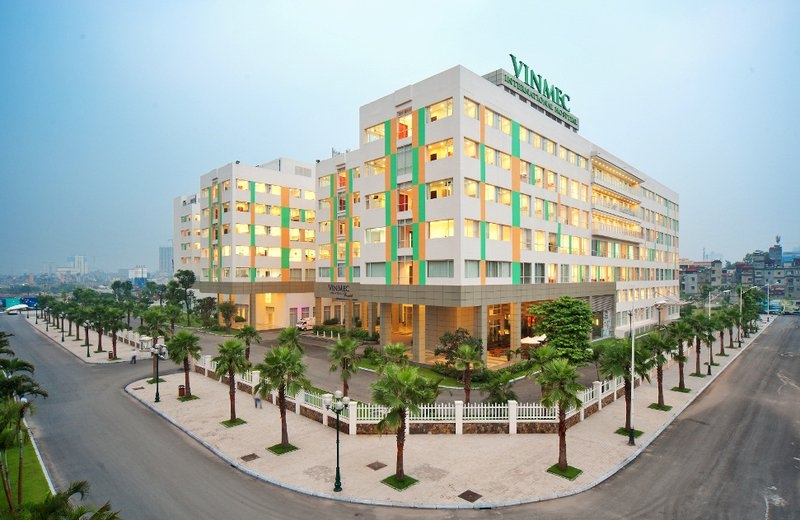Vietnam’s private hospital chains keep attracting foreign investment
 |
| Foreign investors remain interested in Vietnam’s private hospital chains |
A consortium led by GIC, Singapore’s sovereign wealth fund, has recently announced an investment of $203.1 million for a minority stake in VMC Holding Business Investment JSC (VMC), a subsidiary of the largest private enterprise Vingroup JSC.
VMC is the parent of private hospital developer and operator of Vinmec. The new funds will be used to expand Vinmec’s medical and clinic network.
Following the transaction, Vingroup will remain the controlling shareholder of VMC. Meanwhile, GIC will receive a share of VMC's income proportionate with its equity interest, whilst Vingroup will continue to re-invest all income into the business, in line with the group’s existing commitment that its investment in healthcare will remain non-profit.
The tie-up between Vinmec and GIC is aimed at pursuing operational excellence as well as leveraging GIC’s extensive expertise and investments in the healthcare sector globally, including GIC’s partnership with Metro Pacific Hospital Holdings Inc. in the Philippines since 2014.
GIC’s investment in the Vingroup medical unit is a testament to the attractiveness of Vietnam’s private healthcare sector. According to data by the Ministry of Health, Vietnam has 250 private hospitals, accounting for 17 per cent of the total 1,400 hospitals nationwide. Since the beginning of 2011, the number of hospital beds in private hospital have tripled but only made up 5.6 per cent of the total hospital beds in Vietnam. The Ministry of Health estimated that only 7 per cent of Vietnamese used private-sector health services. The government is now welcoming international firms to help shoulder the burden of the overrun public hospitals.
In November, Nhi Dong 315, a Vietnamese tech-enabled healthcare services company, closed its pre-Series A financing from a consortium of international investors from Hong Kong, Japan, Singapore, the Philippines, Vietnam, and Europe. This was Nhi Dong 315’s first external funding since opening its first clinic in June 2019, as reported by BusinessNewsAsia.
Nhi Dong 315 is running a paediatric clinic chain – each with an embedded and fully-licensed pharmacy. The proceeds will be spent on its expansion to stablish itself as the leading provider of affordable and accessible paediatric care to the growing middle class of Vietnam.
The company will also invest in its technology suite, which today includes a patient-facing mobile booking app and proprietary electronic health record (EHR) system.
Since its inception, Nhi Dong 315 has performed over 65,000 patient examinations. As a mass premium healthcare services provider, the company plans to operate at least one clinic in each district of Ho Chi Minh City and, afterwards, expand further into other major cities and provinces across the country.
In August, VinaCapital also invested in Thu Cuc International General Hospital (TCI) by purchasing a 30 per cent stake for $26.7 million. TCI was established in 2011 in one of most populated and rapidly developing areas of Hanoi by Nguyen Thu Cuc, who in 1996 became the first woman to launch and operate a private healthcare company in Northern Vietnam. By working with some of Vietnam’s most experienced and leading doctors, Cuc quickly established TCI as a trusted destination for high-quality services at affordable prices in the fields of obstetrics and gynaecology, oncology, and offering comprehensive health checks.
Nguyen Thu Cuc, founder and chairwoman of TCI said that Vietnam’s private healthcare sector has tremendous potential. There is a growing demand for high-quality healthcare due to the country’s large population and rising affluent class. However, the current healthcare system has yet to catch up with the evolving needs. Specifically, Vietnamese people spend around $2 billion on overseas healthcare each year. Meanwhile, there are abundant resources for the local healthcare industry such as a pool of top-notch doctors. Thus, there needs to be more investment to exploit the potential of this field.
In February, British Real Capital London also launched the $156 million Hong Anh Medical Campus project in Ho Chi Minh City. The facility is a state-of-the-art healthcare system incorporating a 462-bed hospital, a medical training centre, a network of general practice clinics and pharmacies, and senior residencies and nursing homes, adding much-needed facilities and services to Vietnam’s healthcare system. The project is divided into four stages, with the final phase expected to be completed by 2030.
Andy Ho, chief investment officer of VinaCapital cited BMI’s data showing that healthcare spending will grow to $22.7 billion in 2021, recording a compound annual growth rate (CAGR) of approximately 12.5 per cent from 2017 to 2021 (data by BMI). As Vietnam’s middle class continues to expand, consumers are seeking greater access to private medical services, thereby relieving the burden on the public health sector. Thus, there is ample room for Vietnam’s healthcare sector, making it attractive for investors.
What the stars mean:
★ Poor ★ ★ Promising ★★★ Good ★★★★ Very good ★★★★★ Exceptional
 Tag:
Tag:
Related Contents
Latest News
More News
- Foreign leaders extend congratulations to Party General Secretary To Lam (January 25, 2026 | 10:01)
- 14th National Party Congress wraps up with success (January 25, 2026 | 09:49)
- Congratulations from VFF Central Committee's int’l partners to 14th National Party Congress (January 25, 2026 | 09:46)
- 14th Party Central Committee unanimously elects To Lam as General Secretary (January 23, 2026 | 16:22)
- Worldwide congratulations underscore confidence in Vietnam’s 14th Party Congress (January 23, 2026 | 09:02)
- Political parties, organisations, int’l friends send congratulations to 14th National Party Congress (January 22, 2026 | 09:33)
- Press release on second working day of 14th National Party Congress (January 22, 2026 | 09:19)
- 14th National Party Congress: Japanese media highlight Vietnam’s growth targets (January 21, 2026 | 09:46)
- 14th National Party Congress: Driving force for Vietnam to continue renewal, innovation, breakthroughs (January 21, 2026 | 09:42)
- Vietnam remains spiritual support for progressive forces: Colombian party leader (January 21, 2026 | 08:00)





















 Mobile Version
Mobile Version